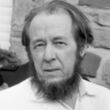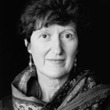Molotov's magic lantern: travels in Russian history
Description
More Details
Table of Contents
From the Book - First American edition.
Similar Titles From NoveList
Similar Authors From NoveList
Published Reviews
Booklist Review
*Starred Review* British writer Polonsky moved to Moscow and took up residence in a once-opulent old building that had been a favorite of the Soviet elite, including the monstrous Vyacheslav Molotov, Stalin's second in command. Invited into Molotov's apartment, still owned by his granddaughter, Polonsky is morbidly fascinated by Molotov's belongings, including a magic lantern and a stash of books from his formerly enormous library. And so begins Polonsky's book-steered journey through modern Russian history. Cogently descriptive, empathic, plucky, and acerbic, Polonsky begins with a tour of Moscow's grim landmarks of the Stalin era, then ventures out into the countryside, excavating the tragic and heroic stories of writers and scientists who suffered banishment and worse, many the victims of Molotov's industrious murderousness. She visits the site of Dostoyevsky's dacha and Rostov-on-Don, the world of the Cossacks, which Isaac Babel so bravely infiltrated. She travels north to the formidable Kola Peninsula, then to Siberia, the realm of shamans, exiles, and prisoners; a Buddhist enclave along the Mongolian border; and imperiled Lake Baikal. Polonsky is so steeped in Russian history and literature that everywhere she goes, her inner magic lantern projects the past onto the present, the imagined onto the real, and what we see is an illuminated land of immense brutality and beauty, suffering and spirit.--Seaman, Donna Copyright 2010 Booklist
Publisher's Weekly Review
When she moves to Moscow, British journalist Polonsky discovers that the former apartment of Vyacheslav Molotov, Stalin's most loyal henchman, is right above hers. Purely by coincidence, she is conducted into Molotov's apartment and discovers, among other objects, much of the former leader's library, some of it crumbling to dust, and an old magic lantern. Like faded images waiting for the light of this antique slide projector, Russian history and the Russian present reveal themselves in glimpses, like figures rising out of the dark, to Polonsky. In this sometimes entertaining and sometimes dreary book of travels, Polonsky uses the rotting pages of the books in Molotov's library as a guide, sometimes tracing lines that lead to places of exile, quest, or crime. In her travels, Polonsky goes to Lake Ilmen, where Christianity challenged many pagan deities, as well as to the towns where Chekhov and Dostoyevski wrote their most famous works. Part memoir, part travelogue, and part literary history, Polonsky's reminiscences bring to life both the familiar and the obscure in Russian history and literature, and raise indirectly the question of how Molotov, with his deep love and apparent appreciation of literature, could be responsible for his role in the execution of so many writers during the 1930s purges. (Jan.) (c) Copyright PWxyz, LLC. All rights reserved.
Library Journal Review
British journalist Polonsky (English Literature and the Russian Aesthetic Renaissance) delivers a literary, cultural, and travel memoir crafted with obvious compassion. Writing of both her own journey and the life of Vyacheslav Molotov, one of Stalin's infamous henchmen, she relates-in a manner sometimes approaching stream-of-consciousness-the connections between her Russian experiences and the lives and stories of those who influenced her when she and her family moved to a particular apartment building in Moscow. In the same building lived Molotov's granddaughter, in what had been Molotov's apartment. From ruminations on Molotov's possessions, Polonsky moves on to share the historical and cultural details of her literary-inspired travels through Russia, from the late 1990s through the early 2000s. Quite varied in scope, her book shares the personal stories of many everyday Russians and some of its most historical figures. She shows the understanding of an academic but not the academic's devotion to citation, evidential support, or argumentative structure. Verdict This book will be enjoyed by lovers of Russian history, including its cultural and literary heritage, and many who have dreamed of traveling through Russia or of understanding its beauty and struggle through the eyes of its people.-Elizabeth Zeitz, Otterbein Univ. Lib., Westerville, OH (c) Copyright 2011. Library Journals LLC, a wholly owned subsidiary of Media Source, Inc. No redistribution permitted.
Kirkus Book Review
Journalist Polonsky (English Literature and the Russian Aesthetic Renaissance, 1998) steps back into a near-vanished world of Soviet and Russian history.Having moved to Moscow from England, the author and her family lived on Romanov Lane, in the apartment just below where Stalin's henchman Vyacheslav Molotov resided during the last years of his life (d. 1986). Polonsky was invited by the current resident to poke around the flat, and through his library she was able to illuminate "discrete moments" from Russian history as through a magic lantern: "Russian history and the Russian present have revealed themselves to me in glimpses," she writes, "through a narrow lens, like the faded images waiting for light in this antique slide projector." She was spurred in her scholarly pursuits by her own intensive reading. Throughout the narrative, she returns to her favorite works, including Walter Benjamin'sMoscow Diary, Dostoevsky's novels and the poetry of Osip Mandelstam. Romanav Lane was the rarefied address, successively, of the Russian aristocracy of "old Moscow," intriguers during the Revolution, the Soviet nomenklatura and today's wealthy financiers. Polonsky ventured on expeditions to far-flung cities such as Lutsino, a dacha colony above the hills of Moscow where distinguished scientists loyal to the Soviet state were offered summer homes; Mozzhinka, where Stalin's reluctant president of the Academy of Sciences, Sergei Vavilov, wrote his private memoirs; and some of the sites sacred to Chekhov, a favorite writer of Molotov as well as the author. She also visited Vologda, where "any individual who ever opposed the power of the state is likely to have passed through"; the northern cities of Archangel and Murmansk; and several Siberian townsall in search of swiftly disappearing traces of these complicated, tragic lives.A meandering, reflective, satisfying, intimate discovery of Russian historythough it may be too academic for many general readers.]] Copyright Kirkus Reviews, used with permission.
Booklist Reviews
*Starred Review* British writer Polonsky moved to Moscow and took up residence in a once-opulent old building that had been a favorite of the Soviet elite, including the monstrous Vyacheslav Molotov, Stalin's second in command. Invited into Molotov's apartment, still owned by his granddaughter, Polonsky is morbidly fascinated by Molotov's belongings, including a magic lantern and a stash of books from his formerly enormous library. And so begins Polonsky's book-steered journey through modern Russian history. Cogently descriptive, empathic, plucky, and acerbic, Polonsky begins with a tour of Moscow's grim landmarks of the Stalin era, then ventures out into the countryside, excavating the tragic and heroic stories of writers and scientists who suffered banishment and worse, many the victims of Molotov's industrious murderousness. She visits the site of Dostoyevsky's dacha and Rostov-on-Don, the world of the Cossacks, which Isaac Babel so bravely infiltrated. She travels north to the formidable Kola Peninsula, then to Siberia, the realm of shamans, exiles, and prisoners; a Buddhist enclave along the Mongolian border; and imperiled Lake Baikal. Polonsky is so steeped in Russian history and literature that everywhere she goes, her inner magic lantern projects the past onto the present, the imagined onto the real, and what we see is an illuminated land of immense brutality and beauty, suffering and spirit.
Library Journal Reviews
After moving to Moscow, British journalist Polonsky discovered that her apartment building was once home to infamous Stalinist Vyacheslav Molotov. A current resident showed her the magic lantern Molotov had left behind and the room containing Molotov's library-which included books by writers he'd condemned to the Gulag. In this literary excursion, Polonsky uses this library to ignite her understanding of Russia. Upon its UK publication, this book got generally warm reviews-and one anonymous bashing that turned out to be from noted Slavicist Orlando Figes, whose Natasha's Dance Polonsky had panned. (Figes has since had to pay a fine.) Consider strongly wherever Russia, literature, and literary scandal are popular. Copyright 2010 Reed Business Information.
LJ Express Reviews
British journalist Polonsky (English Literature and the Russian Aesthetic Renaissance) delivers a literary, cultural, and travel memoir crafted with obvious compassion. Writing of both her own journey and the life of Vyacheslav Molotov, one of Stalin's infamous henchmen, she relates-in a manner sometimes approaching stream-of-consciousness-the connections between her Russian experiences and the lives and stories of those who influenced her when she and her family moved to a particular apartment building in Moscow. In the same building lived Molotov's granddaughter, in what had been Molotov's apartment. From ruminations on Molotov's possessions, Polonsky moves on to share the historical and cultural details of her literary-inspired travels through Russia, from the late 1990s through the early 2000s. Quite varied in scope, her book shares the personal stories of many everyday Russians and some of its most historical figures. She shows the understanding of an academic but not the academic's devotion to citation, evidential support, or argumentative structure. Verdict This book will be enjoyed by lovers of Russian history, including its cultural and literary heritage, and many who have dreamed of traveling through Russia or of understanding its beauty and struggle through the eyes of its people.-Elizabeth Zeitz, Otterbein Univ. Lib., Westerville, OH (c) Copyright 2010. Library Journals LLC, a wholly owned subsidiary of Media Source, Inc. No redistribution permitted.
Publishers Weekly Reviews
When she moves to Moscow, British journalist Polonsky discovers that the former apartment of Vyacheslav Molotov, Stalin's most loyal henchman, is right above hers. Purely by coincidence, she is conducted into Molotov's apartment and discovers, among other objects, much of the former leader's library, some of it crumbling to dust, and an old magic lantern. Like faded images waiting for the light of this antique slide projector, Russian history and the Russian present reveal themselves in glimpses, like figures rising out of the dark, to Polonsky. In this sometimes entertaining and sometimes dreary book of travels, Polonsky uses the rotting pages of the books in Molotov's library as a guide, sometimes tracing lines that lead to places of exile, quest, or crime. In her travels, Polonsky goes to Lake Ilmen, where Christianity challenged many pagan deities, as well as to the towns where Chekhov and Dostoyevski wrote their most famous works. Part memoir, part travelogue, and part literary history, Polonsky's reminiscences bring to life both the familiar and the obscure in Russian history and literature, and raise indirectly the question of how Molotov, with his deep love and apparent appreciation of literature, could be responsible for his role in the execution of so many writers during the 1930s purges. (Jan.)
[Page ]. Copyright 2010 PWxyz LLC
































